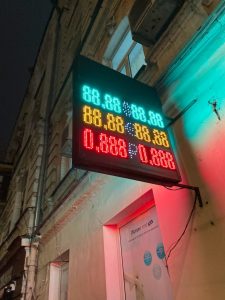Currency volatility in the NZD/USD forex is a common occurrence that affects the global financial markets. The New Zealand dollar (NZD) and the US dollar (USD) are two of the most heavily traded currencies in the world, and their exchange rate is subject to a range of economic, political, and social factors that can cause fluctuations in value. In this article, we will explore some of the reasons behind the currency volatility in the NZD/USD forex and the impact it has on the global economy.
One of the primary drivers of currency volatility in the NZD/USD forex is the relative economic performance of both countries. The US is the world’s largest economy, and the USD is the world’s dominant reserve currency. The NZD, on the other hand, is a smaller currency and is heavily influenced by the performance of the New Zealand economy. Any significant changes in economic performance, such as changes in interest rates, inflation rates, or unemployment rates, can impact the value of the NZD/USD exchange rate.
Another factor that can cause currency volatility in the NZD/USD forex is political instability. Political events, such as elections, can have a significant impact on exchange rates. In 2016, for example, the surprise election of Donald Trump as US President caused significant volatility in the markets, including the NZD/USD forex. Similarly, political events in New Zealand, such as changes in government or policy decisions, can also impact the value of the NZD.
International trade and market sentiment can also cause currency volatility in the NZD/USD forex. New Zealand is a small, export-oriented economy, and any changes in global trade patterns can have a significant impact on its currency. For example, a decrease in demand for New Zealand’s exports, such as dairy, can lead to a decline in the NZD. Similarly, changes in investor sentiment can also impact the value of the NZD/USD exchange rate. If investors perceive New Zealand to be a risky investment, they may sell NZD assets, causing the currency to depreciate.
Finally, central bank policies can also cause currency volatility in the NZD/USD forex. The US Federal Reserve and the Reserve Bank of New Zealand are responsible for setting monetary policies that impact their respective currencies. Changes in interest rates or monetary policy decisions can cause fluctuations in the exchange rate. For example, if the US Federal Reserve raises interest rates, the USD may appreciate against the NZD. Similarly, if the Reserve Bank of New Zealand lowers interest rates, the NZD may depreciate against the USD.
The impact of currency volatility in the NZD/USD forex is significant and can affect the global economy. For example, a decline in the value of the NZD can make New Zealand’s exports more competitive, potentially boosting economic growth. However, it can also make imports more expensive, leading to inflation. Similarly, a decline in the value of the USD can make US exports more competitive, but it can also lead to inflation and higher borrowing costs. Currency volatility can also impact global financial markets, as investors may shift their funds to other currencies or assets, causing further volatility.
In conclusion, currency volatility in the NZD/USD forex is caused by a range of economic, political, and social factors. Changes in economic performance, political events, international trade, market sentiment, and central bank policies can all impact the exchange rate. The impact of currency volatility on the global economy can be significant, and it is essential for investors to understand the reasons behind the fluctuations in the NZD/USD forex to make informed investment decisions.






